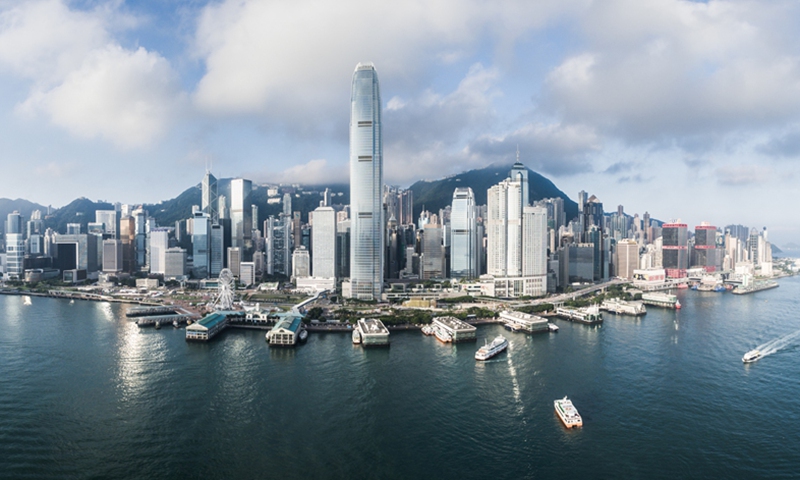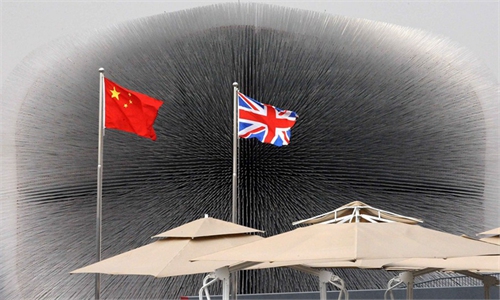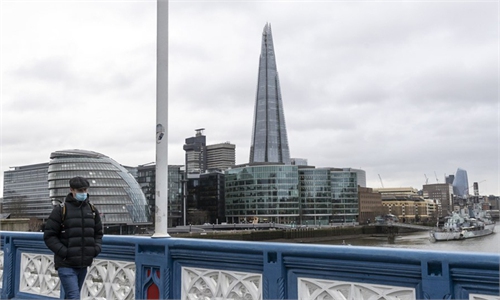COMMENTS / EXPERT ASSESSMENT
London vilifies HK's business environment to serve a political agenda

Hong Kong File photo
Editor's note:
The UK recently updated its guidance on overseas businesses operating within the Hong Kong Special Administrative Region (HKSAR), playing up "political risks" there in order to vilify the National Security Law for the SAR which has been enacted to restore stability and safeguard long-term prosperity of HK. During interviews with the Global Times, Chinese experts noted that Hong Kong, with improved legal system, remains a major international financial center and has a promising future; while the UK, suffering through an unprecedented economic recession, will only narrow its prospects for recovery and development if London continues to antagonize China.
Liang Haiming, chairman of the China Silk Road iValley Research Institute who closely follows Hong Kong economic affairs
Hong Kong Special Administrative Region (SAR) remains as one of the world's most attractive financial hubs, with in-flowing investors aiming to cash in on the rapid growth of Chinese mainland economy.
The number of new foreign-funded firms in Hong Kong reached 9,025 in 2020, about 15 less than that in the previous year.
Moreover, the number of firms conducting Initial Public Offerings (IPO) in Hong Kong totaled 106 in the first 10 months in 2020, approximately equaling the level of the previous year and 5 more than that in 2018.
The city, with over 4,000 Chinese firms worth more than $3 trillion, has sufficient strength to maintain its leading status as a global financial center. As the crucial path for international investors to seize the opportunity by gaining a foothold in the thriving economy, Hong Kong will remain as a market that global capitals cannot afford to give up.
Li Gang, an associate professor at the Institute of European Studies under the Chinese Academy of Social Sciences
Issuing business guidance could be subjective. Publishers may tailor specific content to serve their own political purposes, like the UK government's so-called guidance on businesses operating in Hong Kong. Defaming Hong Kong's business environment is, again, a move of UK trying to confront China by playing the Hong Kong card.
After leaving the EU bloc, the UK is facing rising challenges from waning political influence to decreasing trade position, as well as uncertainties in maintaining its status as a global financial center. The nation has signaled its intention to shore up its role as one of the major powers in the world.
Meanwhile, the Atlantic country has been battered by continuous onslaught of the novel coronavirus. Combined with a bumpy Brexit, the British economy recorded a drastic 9.9 percent contraction in 2020, a record slump since 1709.
Under these circumstances, expanding its economic and trade reaches would be beneficial for the country to pull itself out of the unprecedented recession, instead of creating tensions among the international community.
As the only major economy realized positive economic growth in 2020, China has recently surpassed the US and became the largest trading partner of the EU, and has been expected as the driven force of the global economic growth during the post-pandemic era.
With cooperative potential in sectors including finance and trade, maintaining a stronger tie with China would facilitate the recovery of the British economy.
However, any ill-intended move by London to cross the red line and damage the core interest of China will reverse the possible benign development of bilateral relations, and may even lead to economic sanctions. London should call off provocations against China's core interests and focus on healthy and stable bilateral relation which benefits both sides.
Global Times



